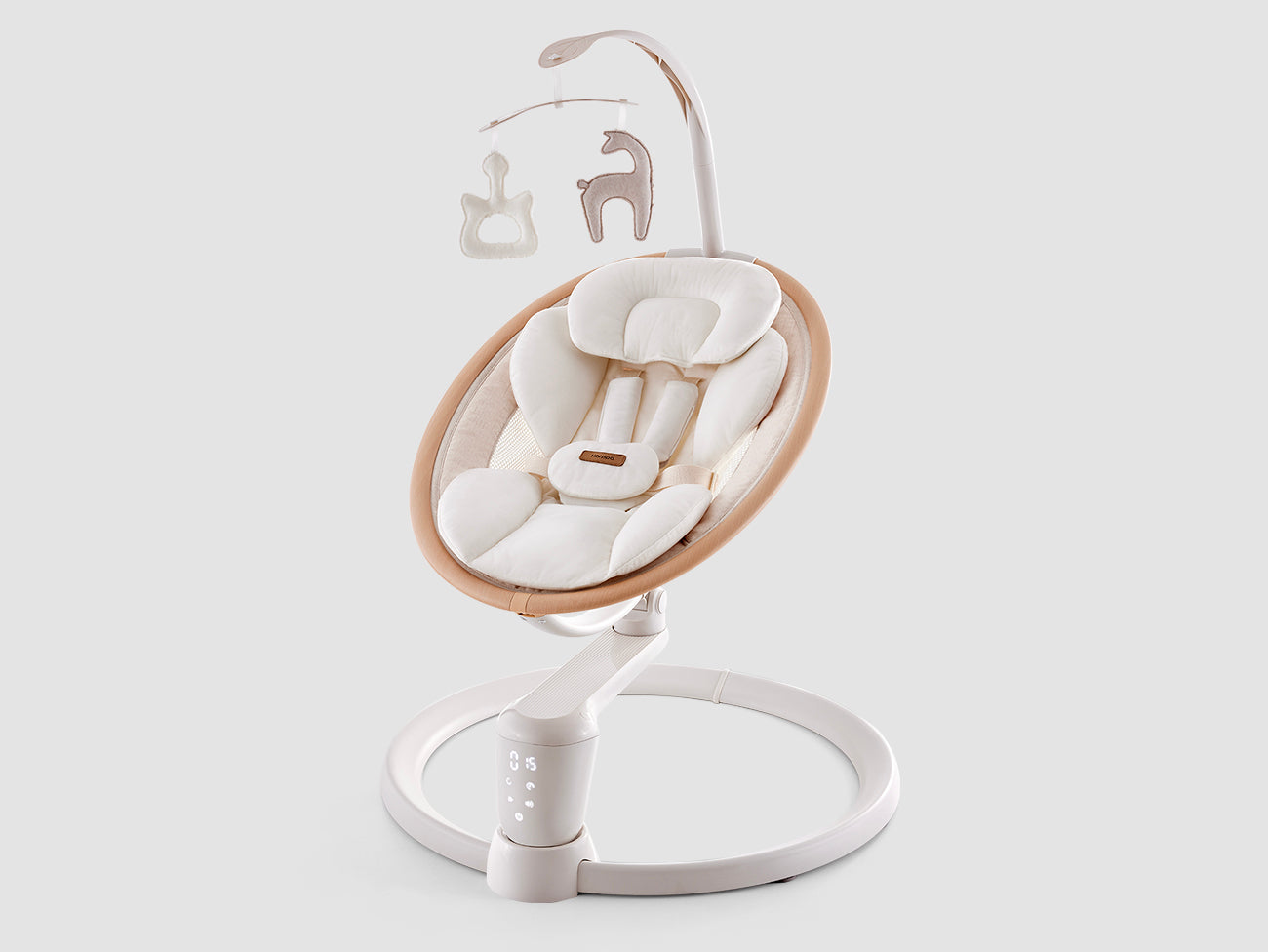Infant brain development is crucial in the early years and directly impacts future cognitive abilities, emotional growth, and language skills. During your baby's development, different stages require different types of support. Through parent-child interactions, sensory stimulation, play, and reading, parents can effectively support their infant’s cognitive development.
1. Stages of Infant Brain Development
-
0-6 Months: Sensory and Reflexive Stage At this stage, babies use their vision, hearing, and touch to understand the world. Parents can support sensory development through gentle touch and eye contact with their baby. Exposing babies to different colors and shapes can enhance their visual sensitivity, while soft music or the mother’s voice can aid auditory development.
-
6-12 Months: Cognitive and Motor Development During this stage, babies begin to explore their environment more actively, learning to grasp, crawl, and stand. Interaction can include providing safe toys that encourage manipulation, which helps develop cognitive abilities. Allowing babies to touch objects with various textures also supports tactile and motor skill development.
-
12-24 Months: Language and Social Interaction This period is marked by rapid language development as babies start mimicking adult language and behavior. Parents can foster language skills through conversations, singing songs, and reading stories. These interactions not only enhance language skills but also strengthen the emotional bond between parents and their baby.
2. Supporting Cognitive Development Through Daily Interactions
-
The Power of Parent-Child Interaction Close interaction is crucial for emotional and cognitive development. Simple acts like smiling, responding to baby’s sounds, or mimicking their expressions can increase their sense of security and self-confidence. Frequent parent-child interaction helps build neural connections in the brain, boosting learning ability.
-
The Importance of Play Play is a primary way infants learn. Simple games such as grasping or peek-a-boo can make babies happy while developing their hand-eye coordination and cognitive skills. Engaging in these interactive games helps babies understand cause-and-effect relationships and object permanence.
-
Benefits of Early Reading Reading is foundational for language learning and stimulates imagination. Even if babies can’t yet understand the words, hearing their parents’ voices and observing the illustrations in books positively impacts brain development. Establishing a daily reading routine can foster a love for language and stories.
3. The Importance of Sensory Stimulation and Environment
-
The Benefits of Multi-Sensory Experiences Babies explore the world through their senses, and providing rich sensory stimulation can effectively promote brain development. Brightly colored objects, soothing music, and toys with different textures help babies better understand their environment. Creating a safe and comfortable space at home supports their exploration.
-
Exploration and Independent Play Independent play can enhance creativity and problem-solving skills. Allowing babies to explore safely in their environment helps them learn how to manipulate objects and solve small problems, fostering independent thinking skills.
4. Parental Support and Patience
-
Understanding Developmental Differences Each baby develops at their own pace; some may develop language skills slower or start crawling earlier. Parents need to understand and accept these differences, supporting their child’s growth with patience. Avoid excessive anxiety and trust that your baby will reach developmental milestones in their own time.
-
Seeking Professional Help If parents notice developmental issues such as significant language delays or motor skill challenges, seeking guidance from early childhood experts or pediatricians can be beneficial. Professionals can provide testing and recommendations to help understand and address the baby’s needs.
Conclusion
Early brain development is vital, and parents play an essential role in this process. Through intimate interactions, play, reading, and sensory stimulation, parents can support their baby's cognitive growth and lay a solid foundation for their future development. Patience and care are key elements in guiding your baby through this crucial stage of growth.





























2 comments
kidscastle
The blog offers valuable insights into supporting infant brain development through sensory stimulation, play, and reading. The book is a must-read for new parents aiming to foster their child’s cognitive development at an early age.
The blog offers valuable insights into supporting infant brain development through sensory stimulation, play, and reading. The book is a must-read for new parents aiming to foster their child’s cognitive development at an early age.
Kidskastle
This is a very informative blog! Providing practical tips on how to support cognitive growth in infants, it thoughtfully explains key stages of infant brain development.
This is a very informative blog! Providing practical tips on how to support cognitive growth in infants, it thoughtfully explains key stages of infant brain development.